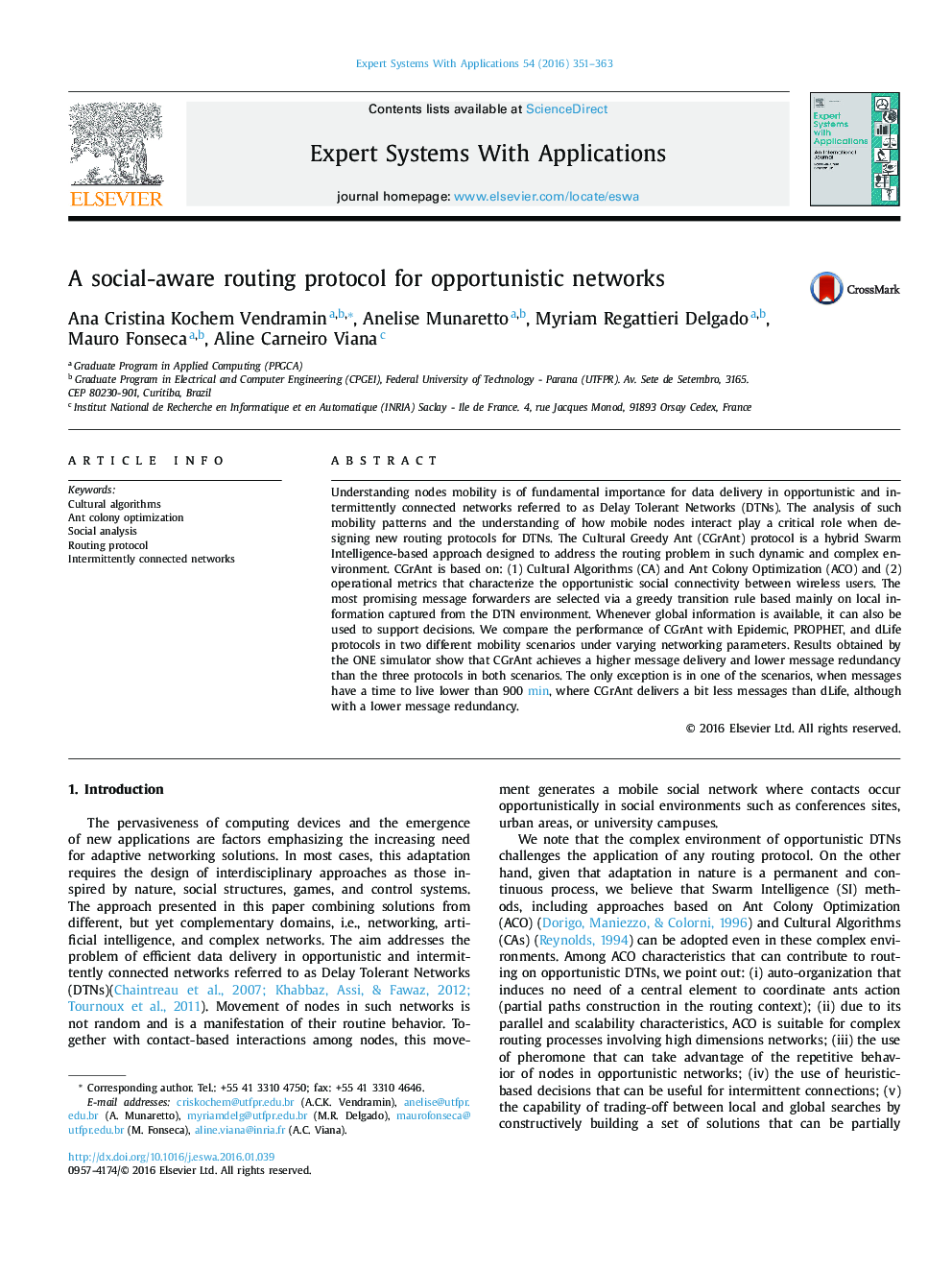| Article ID | Journal | Published Year | Pages | File Type |
|---|---|---|---|---|
| 383278 | Expert Systems with Applications | 2016 | 13 Pages |
•Swarm intelligence-based approach designed to intermittently connected networks.•Greedy Ant Colony Optimization and Cultural Algorithms to address the routing problem.•The utility of nodes as message forwarders considers a set of socialaware metrics.•Operational metrics characterize the opportunistic social connectivity between nodes.•CGrAnt outperforms Epidemic, PROPHET, and dLife in message delivery and redundancy.
Understanding nodes mobility is of fundamental importance for data delivery in opportunistic and intermittently connected networks referred to as Delay Tolerant Networks (DTNs). The analysis of such mobility patterns and the understanding of how mobile nodes interact play a critical role when designing new routing protocols for DTNs. The Cultural Greedy Ant (CGrAnt) protocol is a hybrid Swarm Intelligence-based approach designed to address the routing problem in such dynamic and complex environment. CGrAnt is based on: (1) Cultural Algorithms (CA) and Ant Colony Optimization (ACO) and (2) operational metrics that characterize the opportunistic social connectivity between wireless users. The most promising message forwarders are selected via a greedy transition rule based mainly on local information captured from the DTN environment. Whenever global information is available, it can also be used to support decisions. We compare the performance of CGrAnt with Epidemic, PROPHET, and dLife protocols in two different mobility scenarios under varying networking parameters. Results obtained by the ONE simulator show that CGrAnt achieves a higher message delivery and lower message redundancy than the three protocols in both scenarios. The only exception is in one of the scenarios, when messages have a time to live lower than 900 min, where CGrAnt delivers a bit less messages than dLife, although with a lower message redundancy.
